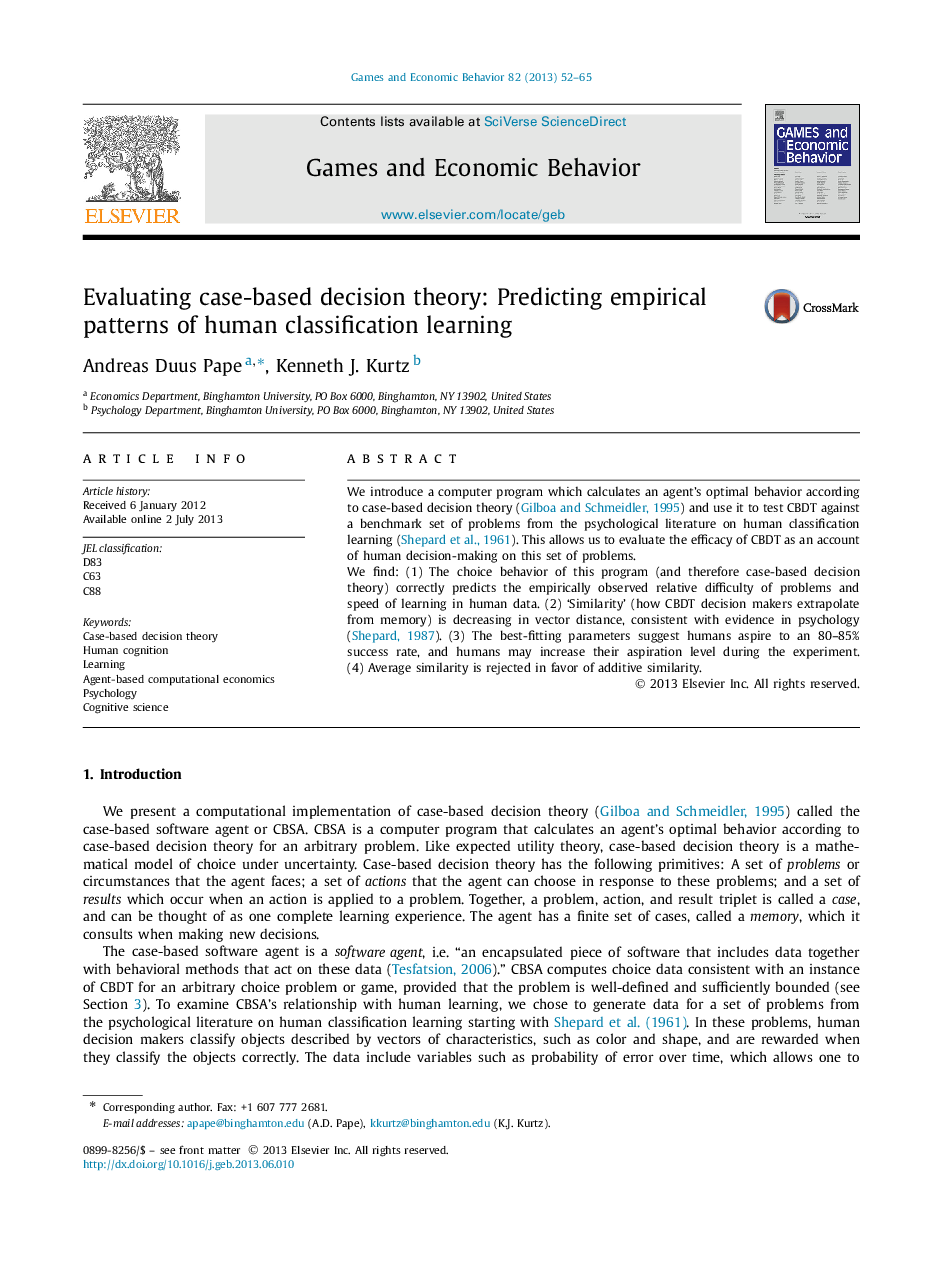| Article ID | Journal | Published Year | Pages | File Type |
|---|---|---|---|---|
| 5071758 | Games and Economic Behavior | 2013 | 14 Pages |
Abstract
We find: (1) The choice behavior of this program (and therefore case-based decision theory) correctly predicts the empirically observed relative difficulty of problems and speed of learning in human data. (2) 'Similarity' (how CBDT decision makers extrapolate from memory) is decreasing in vector distance, consistent with evidence in psychology (Shepard, 1987). (3) The best-fitting parameters suggest humans aspire to an 80-85% success rate, and humans may increase their aspiration level during the experiment. (4) Average similarity is rejected in favor of additive similarity.
Keywords
Related Topics
Social Sciences and Humanities
Economics, Econometrics and Finance
Economics and Econometrics
Authors
Andreas Duus Pape, Kenneth J. Kurtz,
